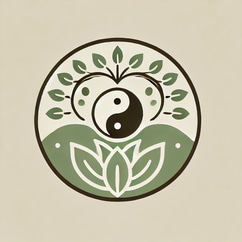How to Face Psychosomatic Illnesses: Understand, Prevent and Overcome
Discover how psychosomatic illnesses affect your health and learn scientific strategies to face them. A complete guide with practical and inspiring tips to transform your life.
Living in Harmany Team
2/28/20253 min read


Have You Ever Felt Physical Pain Without a Clear Medical Cause?
Or perhaps you’ve noticed that emotional stress directly affects your physical health? If so, you might be dealing with a psychosomatic illness. In this article, we’ll explore what these conditions are, how they impact people of all ages, and what science has to offer to help you overcome them. Get ready to understand, prevent, and transform your life with evidence-based strategies.
What Are Psychosomatic Illnesses?
Psychosomatic illnesses are conditions in which emotional, mental, or psychological factors directly influence physical health. While the symptoms are real and often intense, they may lack an identifiable organic cause or be exacerbated by emotional distress.
These conditions can manifest in various ways, including:
Chronic pain (such as back pain, migraines, or fibromyalgia)
Gastrointestinal issues (such as irritable bowel syndrome)
Heart-related symptoms (such as tachycardia or hypertension)
Respiratory disorders (such as asthma attacks)
Skin conditions (such as eczema or psoriasis)
Why Do They Affect People of All Ages?
Psychosomatic illnesses do not discriminate by age, gender, or social class. From children to the elderly, anyone can be affected. This is because the human body is deeply connected to the mind. When we experience stress, anxiety, sadness, or other negative emotions, our autonomic nervous system responds by triggering physical reactions that can become chronic.
For example:
Children may develop issues like bedwetting or recurrent stomach pain due to school or family stress.
Adults often experience muscle pain, insomnia, or high blood pressure linked to work or daily responsibilities.
Elderly individuals may suffer from intensified physical symptoms due to social isolation or the loss of loved ones.
The Science Behind Psychosomatic Illnesses
Modern medicine acknowledges that the mind-body connection is real and powerful. Studies show that the brain releases chemicals during stressful moments, such as cortisol and adrenaline, which can alter the function of organs and bodily systems.
1. The Role of the Autonomic Nervous System
The autonomic nervous system controls involuntary body functions like heartbeat, digestion, and breathing. When we are stressed, it activates the "fight or flight" mode, preparing the body to face threats. However, when this state is prolonged, it can lead to physical wear and tear.
2. The Hypothalamic-Pituitary-Adrenal (HPA) Axis
This system regulates the stress response. When repeatedly activated, it can lead to high cortisol levels, which are associated with inflammation, a weakened immune system, and an increased risk of chronic diseases.
3. Neuroplasticity and Mental Health
Recent research on neuroplasticity shows that the brain can be "trained" to change thought and behavior patterns. This means that with the right techniques, it is possible to reduce the impact of negative emotions on the body.
Evidence-Based Solutions
While psychosomatic illnesses may seem complex, there are several proven approaches that can help alleviate symptoms and promote healing. Here are some of them:
1. Cognitive-Behavioral Therapy (CBT)
CBT is one of the most effective interventions for treating psychosomatic illnesses. It helps patients identify negative thoughts and beliefs that contribute to stress and teaches techniques to replace them with healthier ones.
Benefits:
✔ Reduces anxiety and depression
✔ Improves quality of life
✔ Decreases the intensity of physical symptoms
2. Mindfulness and Meditation
Practices like mindfulness and meditation have gained recognition in the scientific community for their proven benefits to mental and physical health. Studies show that they reduce cortisol levels, improve sleep, and increase well-being.
Practical Tip: Start with 5 minutes of guided meditation daily. Apps like Headspace or Insight Timer can help.
3. Regular Physical Exercise
Activities such as walking, yoga, or swimming release endorphins, known as "happiness hormones." Additionally, they help reduce muscle tension and improve blood circulation.
Important Study: Research published in the Journal of Psychosomatic Research showed that regular exercise significantly reduces psychosomatic symptoms in adults.
4. Balanced Nutrition
A diet rich in anti-inflammatory foods, such as fruits, vegetables, fish, and nuts, can help reduce the effects of stress on the body. Avoid processed foods, refined sugars, and excessive caffeine, which may worsen symptoms.
Recommended Foods:
✔ Omega-3 (found in fish like salmon and sardines)
✔ Magnesium (found in leafy greens and almonds)
✔ Probiotics (such as natural yogurt)
5. Complementary Therapies
Practices such as acupuncture, aromatherapy, and therapeutic massage can also be beneficial. Acupuncture, for example, has been studied for its ability to reduce chronic pain and improve emotional balance.
Inspiration and Motivation: You Are Not Alone
Dealing with psychosomatic illnesses can be challenging, but it’s important to remember that you are not alone. Millions of people worldwide face similar challenges and have found ways to overcome them.
Inspiring Story: Ana’s Journey
Ana, a 35-year-old executive, suffered from frequent headaches and chronic fatigue. After numerous medical tests that revealed nothing, she decided to seek psychological help. Through a combination of CBT, regular exercise, and a balanced diet, Ana regained her quality of life and now shares her story to inspire others.
Final Message
You have the power to transform your health and well-being. Small, consistent changes can make a big difference. Remember: the first step is recognizing the problem and seeking help. With determination and proper support, it is possible to overcome psychosomatic illnesses and live a fulfilling life.
Conclusion
Psychosomatic illnesses are a reality for many people, but science offers powerful tools to tackle them. By adopting strategies such as therapy, mindfulness, physical exercise, and proper nutrition, you can reduce symptoms and improve your quality of life.
If this article was helpful to you, share it with friends and family who may be facing similar challenges. Together, we can spread awareness and hope.
Living in Harmony - @primeconexao
Tips for a balanced lifestyle.
Prime Conection
contact@primeconexao
© 2024. All rights reserved.
primeconexao360@gmail.com
